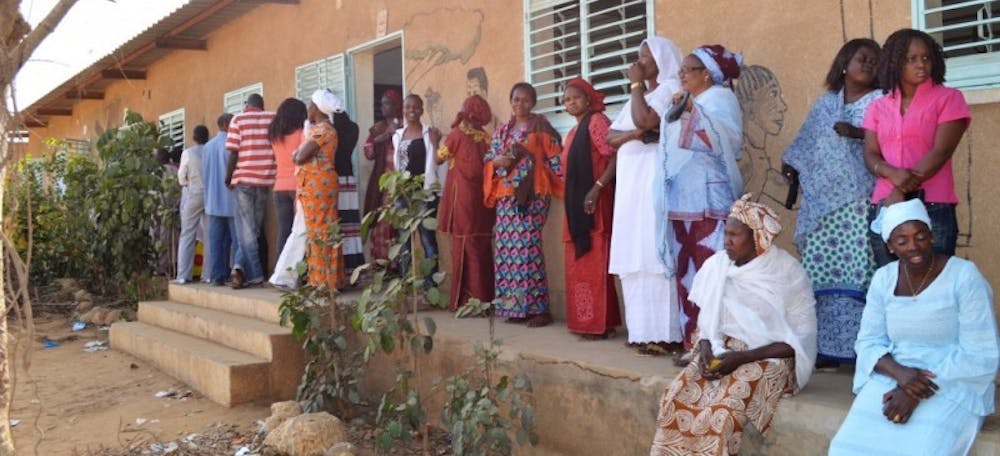Macky Sall defeated Abdoulaye Wade in the second round of presidential elections in Senegal March 25, and took office as the fourth Senegalese president April 2.
The 2012 elections have been marked with strong opposition to the now former president, Abdoulaye Wade. Wade congratulated Macky Sall at Election Day, which eliminated the possibility of Wade illegally refusing to step down as president.
For Khadji Sourang, who lives in Sacre Coeur 3, a region in greater Dakar, the change in president called for celebrations. Souring said she had advocated, marched and prayed for this change.
“It was like a deliverance,” Sourang said.
Sourang participated in the Citizen Movement of Sacre Coeur 3 during the second tour. She said she wanted to be more involved in encouraging others to be active and vote.
“It’s important today for people to take charge of what’s happening in their neighborhood,” she said.
The Citizen’s Movement focuses on giving power to the people of Senegal.
Sourang also walked with a group called “Stop Wade Karim Nafi Yem,” which focused on making sure Wade did not return to power.
Sourang said she knew Macky Sall would be president after the first round of elections because too many people opposed Wade. Still, she said she was afraid the day of the elections and could not sleep.
“I woke up at 3 o’clock in the morning,” she said. “I was alone in my room praying because if Wade came back, it would be bad for Senegal.”
Sourang didn’t hesitate. She headed to the polls at 7 a.m.
Sourang has not always opposed Wade. In fact, she voted for Wade in 2000 and 2007. But now she said there are a lot of problems in Senegal that Wade has contributed to or failed to address, such as poverty, health and corruption. Sourang believes Macky Sall has specific plans to fix this.
“He has made a program for all the population of Senegal, particularly for the young and the women,” she said.
Sall was president of the National Assembly until 2008. But, “Wade asked for Macky to leave so that (his son), Karim Wade, could take his place,” Sourang said.
When Sall left, he formed his own political party. He traveled around all of Senegal to cities and villages in search of what the people needed.
“He listened to the people,” Sourang said.
Sourang said some of Sall’s specific plans included helping women participate in politics and providing health insurance for all the people in Senegal.
“Me, I work,” Sourang said. “But the large majority of the Senegalese population works in the informal sector.”
This means most of the population does not have insurance. Sall wants to change that.
Sourang said Sall also wants to allow women to give birth free of charge.
When the results started coming in on the news and it became obvious that Sall was going to win, Sourang ran out into her neighborhood to celebrate.
Sourang is hosting an American study abroad student, Rachel Boehm, who was able to witness the celebrations.
“The opposition toward Wade has been one of the main themes while I’ve been here in Senegal,” Boehm said. “To see the positive culmination was amazing.”
Boehm said that as an American, she supports democracy, but the real connection to this election was based on emotion.
“I’ve been living in Senegal long enough where the changes will affect the ones I love, my ‘family,’” Boehm said. “When the hope of the country relies on change, that change needs to happen.”
She celebrated with her family and neighborhood the night of the election.
“I have never seen a group of people so excited in my life,” she said.
Boehm said her host mom gathered neighbors together, got in touch with musicians and started a procession around Sacre Coeur 3.
“The farther we went, the bigger it got, the louder it got,” she said.
Sourang was not celebrating the new president as much as she was celebrating the success of the Citizen Movement, which plans to continue making changes even now that the elections are finished.
“It’s not the government, it’s not Macky Sall,” Sourang said. “It’s us.”
Boehm said the spontaneous celebration was one of the most rewarding experiences of her entire stay in Senegal.
“At that moment, there was no separation.”


